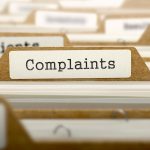You will find your obligations relating to supervision in Chapter 7 of the Code of Conduct. In particular, outcome 7.8, which states that you must have ‘a system for supervising clients’ matters, to include the regular checking of the quality of work by suitably competent and experienced people.’
The recent case of three partners at Johal and Co in Harrow will be a reminder that this duty to supervise is taken very seriously. In this case, the partners failed to supervise a ‘trusted paralegal’ who went on to steal £400,000 from the firm’s clients. The paralegal in question, Mr Maragh, had worked for the firm for 14 years before his actions were noticed and in mitigation the three partners claimed that ‘there was no reason for the partners to doubt the explanations for the payments’ and ‘it was difficult to differentiate between valid requests and fraudulent transactions’.
So, how confident are you that there is a) a proper procedure and structure to supervision within your firm, and b) that all staff follows this procedure? I find a good benchmark is to think what if the SRA turned up tomorrow (gulp!), are you confident that you have the correct policies and procedures in place and (more importantly) that these are being followed?
Our tips for ensuring effective supervision within your firm
- The first tip has to be – make sure that you have a proper supervision policy in place. Is it up to date with all your departmental supervisors? Is it easily accessible for staff to see? Is it clear and concise?
- It follows that the second tip is to make sure that your supervision policy is followed. I am not only taking about supervisors here, everyone should know and follow the policy.
- Follow-up Follow-up Follow-up! When I conduct file reviews I often come across instances where the fee earner has failed to take action recommended by the supervisor, and this has gone un noticed as the supervisor has not followed up. Thinking back to that SRA visit, do you really want to justify that to the SRA? I would suggest it is probably worse than not spotting the issue in the first place!
- Remember that supervision has numerous benefits – it is is key for personal development, good supervisors can help to boost morale and job satisfaction as well as increase the quality and efficiency of work.
- Feedback – Ensure supervisors give regular feedback (both positive and negative) to those they are supervising. Consider training for your supervisors on how to give feedback.
- Supervisors should have regular reviews of their own, this should particularly be the case for larger firms where supervisors are not always part of the management team.
- Make sure your supervisors have adequate time for supervision duties. If they do not, not only are those duties more likely to be pushed to the bottom of the pile, but also those they supervise are less likely to approach them with a question (or even worse a problem. We’ve seen many cases go in front of the SDT where relatively young solicitors have tried to hide their problems and have felt unable to approach their managers.
- Encourage your supervisors to have an open-door policy (and yes you can still have the policy if you work in an open-plan office) where junior staff can feel comfortable to approach them, even if they think they have made a mistake.
- Encourage your supervisors to share experiences and ideas with each other. Perhaps they can swap duties for a day? A fresh pair of eyes and all that!
- Provide supervisors with training in supervision and management – a good solicitor does not always equal a good supervisor.







